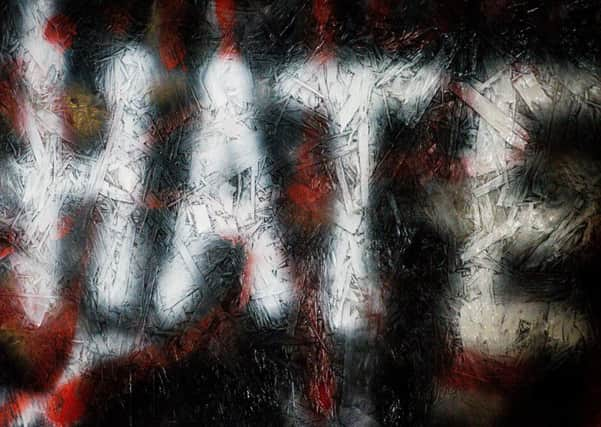In my view with Qari Asim MBE: Working together to stamp out hate crime


Britain is regarded as one of the most tolerant countries in the world and those that commit crimes against individuals because of their race, religious belief, sexual orientation or disability do not represent or reflect the values of a wider diverse and multicultural British society.
However, in recent years the number of people who have been subjected to forms of hate crime has risen considerably, with the latest Home Office figures showing that in Yorkshire hate crimes based on race increased 17% and religion increased by 44% from last year.
Advertisement
Hide AdAdvertisement
Hide AdNationally, there has been a significant rise in offences linked to religious beliefs, with the Muslim community unfortunately the greatest majority of receiving such hatred. The police and other agencies have put in place significant measures to support victims as well as improve the process of recording offences encouraging the public to come forward in reporting. This alongside global events such as Brexit and the attacks in 2017 might explain one of the possible reasons for the increase, however there is more to be done to prevent offences concerning anti-Muslim hatred and anti-Semitism, in particular, from occurring.
Hate crime and abuse is arguably the most important challenge for a number of our communities and one that we must continue to work together to stamp out. I fully support comments made by community and faith leaders, such as the Board of Deputies of British Jews, who want to strengthen our solidarity as neighbours and citizens.
Social interaction projects that bring different communities and faith groups together can send a powerful message of unity against such acts of hatred, building trust and promoting cohesion. But such events have to be more than just about ‘tea and samosas’ and they cannot work in isolation. It is also our personal responsibility to ‘educate.’ Hate begins with fear and fear with ignorance. We have seen that much of anti-Muslim hatred and sentiments are borne out of ignorance about Islam and fear and suspicion towards Muslims. Breaking down barriers and building understanding between different community and religious groups can play a fundamental role in challenging narratives promoted by the far right or extremist groups and to alleviate fears often either borne out of misunderstanding or misinformation/ ‘fake news’.
There are a number of practical steps that can be taken to achieve such results. For instance this month the Imams and Rabbis Council in conjunction with Mosques and Imams National Advisory Board (MINAB) will be hosting a Jewish and Muslim inter-faith event, at the Makkah Mosque on Jewish-Muslim rituals observed at the end of life. The event will bring the two communities together to promote shared customs and traditions but also to provide a forum for open discussion on important issues ensuring we are more resolute and confident against prejudice and hate.
Advertisement
Hide AdAdvertisement
Hide AdSimilarly next month, one of the local churches, All Hallows in Leeds’ Hyde Park, will host a homeless shelter for a week, opening its doors to those sleeping rough and to asylum seekers.
People of all faiths and none will be invited to share nights with these vulnerable individuals in society, with the intention to build solidarity and develop an understanding of what it can mean to be homeless. Social causes of this nature play an important role in developing unity, bringing together different communities to support shared values, as well as encouraging a sense of community responsibility and identity.
Developing social interaction opportunities are of course only one facet, to tackle a complex issue that requires a multi-agency and strategic response. However, these are some of the small but vital steps that local leaders and groups can do to play their part in challenging stereotypes, building understanding and bringing together communities.
It’s our responsibility as faith leaders, neighbours and communities to ensure that engagement and interfaith doesn’t become a simplistic or tokenistic approach to reinforce a sense of understanding and tolerance between us. We have to celebrate and promote that which binds us together but equally challenge and debate the issues that may lead to division and ultimately promote hate.
Advertisement
Hide AdAdvertisement
Hide AdThere is a growing need for a more developed approach, an approach which brings together different elements of the community in order to ask and answer the difficult questions and explore how we can work and live better together.
Qari Asim MBE is the deputy chair of Anti-Muslim Hatred Working Group, senior Imam at Makkah Mosque Leeds and a senior lawyer at DLA Piper. The cross-government Anti-Muslim Hatred Working Group is made up of representatives from the Muslim community, independent experts, academics, and government departments. The group considers and takes forward proposals to tackle anti-Muslim hatred.